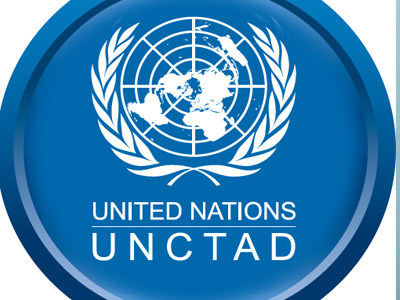 Wants African leaders to address infrastructure gap
Wants African leaders to address infrastructure gap
THE United Nations Conference on Trade and Development (UNCTAD) has established the need for Africa to address the policy disconnect in its trade and services sector, in order to unlock the sector’s potential for growth and economic transformation.
At the presentation of the economic development in Africa report 2015 recently in Lagos, the Head of Trade and Poverty branch, UNCTAD, Switzerland, Patrick Osakwe said that Africa’s services sector holds tremendous economic promise.
Osakwe stated that, ‘‘the impact of continent-wide free trade area will only be meaningful for Africa if services are opened up in parallel with trade in goods, because services such as transport and storage services are necessary components of trade in goods.”
He stated that, the 2015 report is a unique opportunity for African countries to align their existing national, regional and global policies on services trade and many national development plans in the context of their respective regional economic communities.
Though for Africa firms to effectively exploit growing opportunities for expanded trade through global services value chains, while major investments in transport, logistics and energy infrastructure are required. ‘‘Also, as the utilities sector transforms, its regulation and traditional business model of supply and operation move towards being capable of adapting to new technological and consumer demand.
He however added that, African countries should continue to grapple with building the necessary infrastructure to enable industrialisation and economic growth, while putting in place clear and consistent regulatory and compliance frameworks to achieve efficient services.
Osakwe said that, with the trend towards greater regional liberation of trade in services and deeper economic integration in Africa, it may be easier to patronise the service sector with necessary policies to enhance its contribution to growth.
‘‘Though for Africa firms to effectively exploit growing opportunities for expanded trade through global services value chains, while major investments in transport, logistics and energy infrastructure are required.
‘‘Also, as the utilities sector transforms, its regulation and traditional business model of supply and operation move towards being capable of adapting to new technological and consumer demand.”
He noted that the successful insertion of African services sector into global production and services value chains will depend on the ability of countries in the region to build global competitiveness in the services sector and understand the constraints faced by the private sector engaged in the delivery services.



